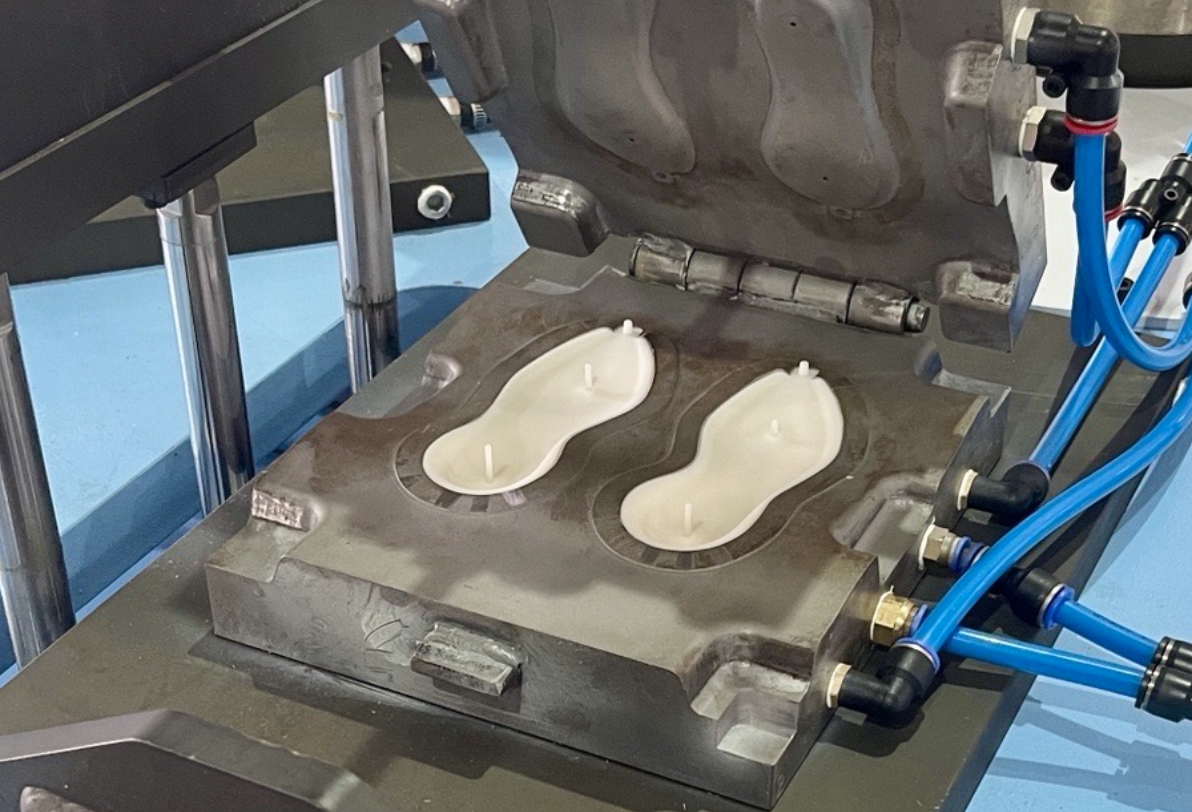
Supercritical foaming is a physical foaming process for plastics. Before getting to the benefits of what that means, it’s helpful to
understand the alternative: chemical foaming processes.
Chemical plastic foaming is arguably the most common technology used to create footwear foam today.
In this process, a chemical foaming agent (a.k.a. blowing agents) is injected into a polymer.
When heated together, the chemical foaming agent decomposes and releases gas into the mixture.
The gas bubbles create air pockets in the melted polymer to create a foam.
While cheap and very capable at their job, many chemical foaming agents bring along some baggage.
Some of it is early in the supply chain during the manufacture of the toxic chemical agents.
The rest is usually associated with inhalation risks, carcinogens, and the release of volatile organic chemicals (VOCs) during heating,
decomposition, and post-production off-gassing.
Supercritical foaming (SCF) skips the “chemical” part entirely and injects an inert, nontoxic gas–usually carbon dioxide or
nitrogen–directly into the melted polymer. With the right blend of heat, pressure, and mixing, a uniform and high quality foam
is the result. The Comfort and Performance Benefits of Supercritical Foaming.
Supercritical foaming creates foam with the following characteristics:
Lightweight
Small pore (air pocket) size and uniformity
Durable comfort
More stable performance
Contact: Sales Dept
Phone: 0769-86293481
Tel: 0769-86293481
Email: sales@smstechindu.com
Add: B2B Office: Fl4 HuaGu Building 3, BaoTang Road, HengKeng, LiaoBu Town, Dongguan, China
We chat
